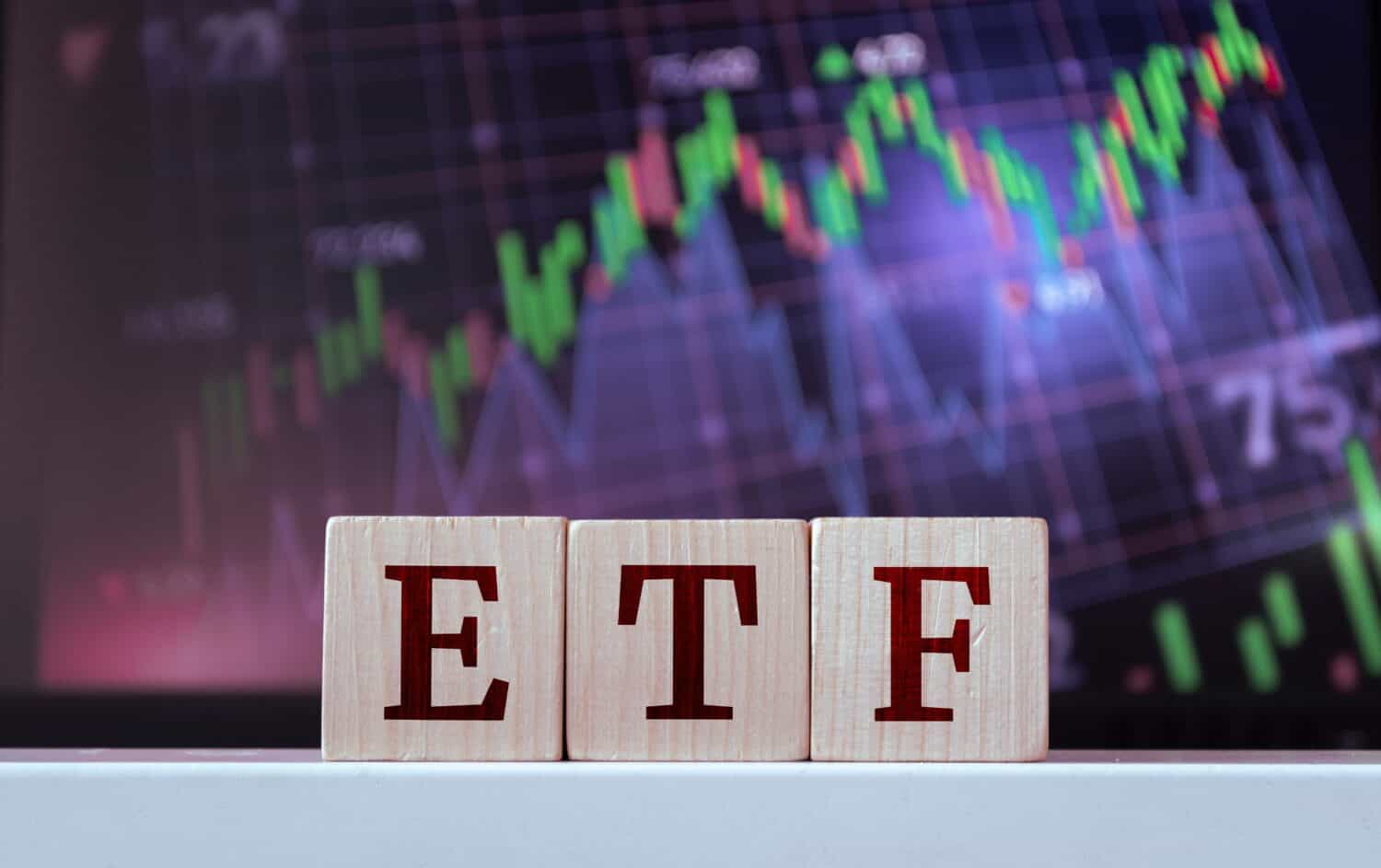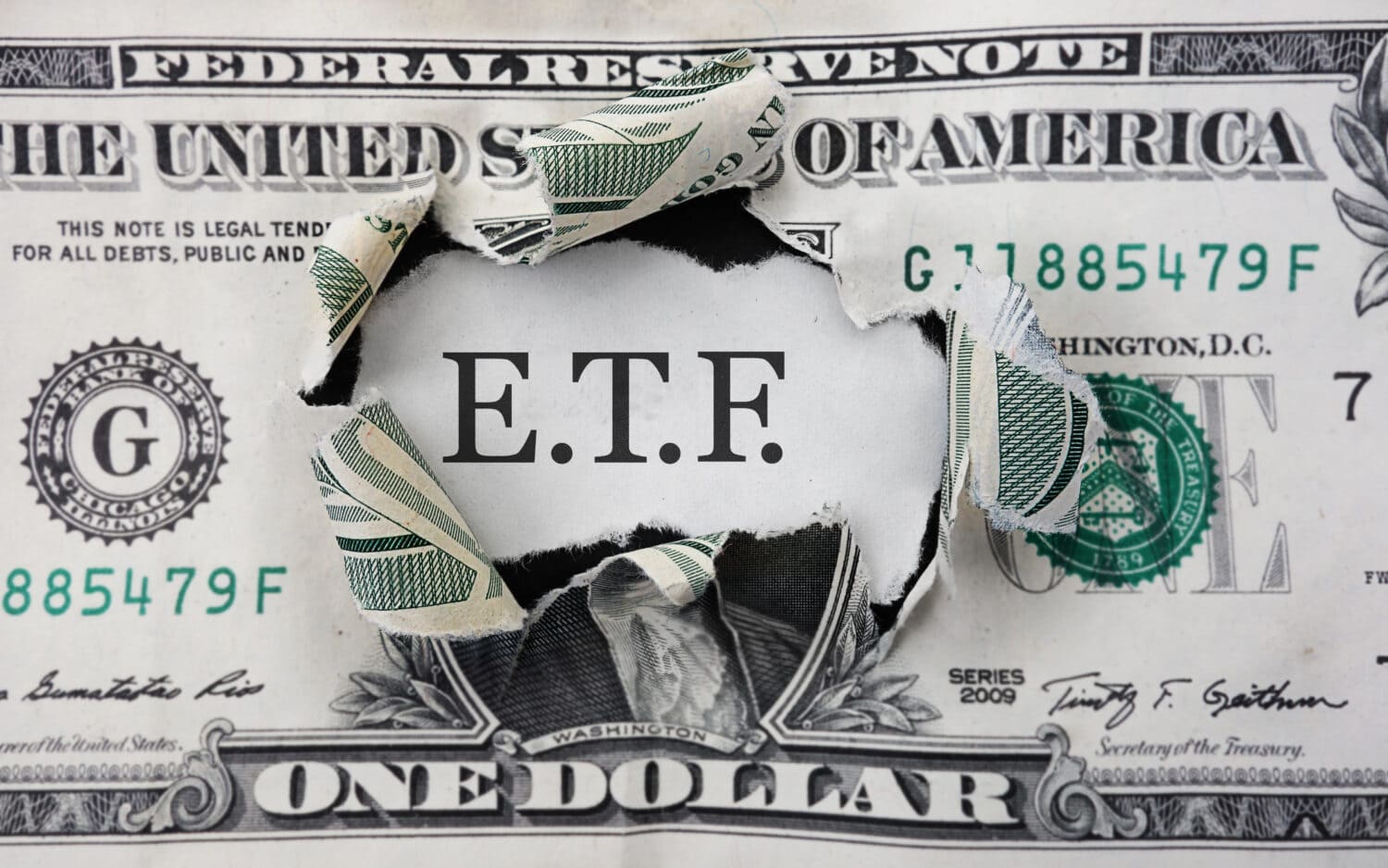
ETFs are one of our favorite investment instruments. They provide exposure to a large swath of stocks, allowing you to quickly diversify your portfolio with a single purchase. You can find ETFs for just about every industry and investing goal, but with so many options, it can be challenging to choose between them.
Two of the most popular ETFs are VGT and QQQ. Both of these offer access to leading tech companies. The choice between VGT and QQQ hinges on an investor’s risk tolerance and investment goals, with VGT favoring aggressive growth-oriented portfolios and QQQ catering to a more balanced approach.
We’ll explore exactly what this means below, helping you choose the best ETF for your investing goals.
What is VGT?

Vanguard Information Technology Index Fund ETF (NYSE: VGT) tracks the CRSP US Large Cap Growth Index. This index tracks established and fast-growing companies in the United States that fall in the large-capitalization category.
This ETF is focused on information technology, which is a very specific industry. Therefore, it isn’t nearly as diverse as other ETFs. If you just want pure exposure to this ever-changing industry, though, this ETF is a solid option.
Luckily, this ETF does concentrate on established, large-sized companies, making it a bit less risky than other ETFs. Large, established companies aren’t quite as volatile as small ones.
VGT prioritizes capital appreciation by targeting companies with the potential for high future growth. This is a high-risk, high-reward situation. You could lose a lot due to the volatility of the ETF (even if it isn’t as volatile due to its focus on established companies). High-growth companies can also fall dramatically.
What is QQQ?

Invesco QQQ Trust (NASDAQ: QQQ) tracks the Nasdaq-100 Index. This index holds the 100 largest companies on the Nasdaq Stock Exchange (that aren’t financial companies). Unlike VGT’s sole focus on information technology, QQQ offers much more diversity, as it holds stock from all industries except finance.
Technology giants do play a huge role in QQQ. The vast majority of this ETF’s stocks are technology-related. However, it also includes companies in the healthcare and communication sectors. This diversification offers a bit more stability, though it can also limit growth.
QQQ has the largest companies in the Nasdaq-100 Index. Therefore, these companies are pretty large, as you’d probably guess. This also limits the risk of the ETF.
VGT vs. QQQ: What Fund is Right for You?

Fees
All ETFs have an expense ratio, which is a fee that pays for the ETF’s management. These fees eat away directly at your profit, though usually in a very small amount. Over time, though, these fees can translate to thousands if you hold the ETF for an extended period.
VGT’s expense ratio is 0.1%, while QQQ’s expense ratio is 0.2%. As you can see, QQQ is twice as expensive to hold as VGT, which can lead to diminished returns. This difference will be small at first, but it can translate into a lot over time.
Risk
There is always risk in investing, and measuring risk is challenging. However, a common way to measure risk is with Beta. Beta is how volatile a stock is compared to the overall market. If a stock is very volatile, it’s likely to move up and down a lot. While this can translate to higher returns, it can also translate to bigger losses.
The market always has a Beta of 1. If an ETF’s Beta is more than 1, it’s more volatile than the overall market. If an ETF’s BETA is less than 1, it’s less volatile than the market.
You can use the Beta to compare ETFs to each other.
QQQ’s Beta is 1.19, making it a bit more volatile than the overall market. It’s more risky than investing in SPY, which mirrors the overall market. (For more information on this, check out our SPY vs. QQQ article.)
VGT’s Beta is 1.27, making it even more volatile than the overall market. Once again, more risk is involved, but there is also more reward potential. It depends largely on your risk tolerance.
Historical Performance
Both VGT and QQQ have a strong track record of growth, but their historical performance differs due to their underlying strategies.
VGT focuses on technology leaders and has historically delivered higher average returns compared to QQQ, particularly in strong bull markets. Technology stocks are known for their explosive growth, propelling VGT’s overall performance. However, there is also more risk involved.
During market downturns, VGT is more likely to move downwards more and faster than QQQ. Therefore, you may also have steeper losses with VGT over the short term. It tends to drop steeper when it does drop, but when it regains, it tends to outperform QQQ. It’s largely whether you’re planning on holding the ETF for long enough for it to regain.
If you have a short holding period (in other words, if you need your money by a certain date in the near future), you may be unable to hold long enough to get through VGT’s drops. This can lead to you having a lower return than QQQ or even losing money.
If you’re holding for ten years or more, VGT will likely have a higher performance than QQQ. You’ll likely be able to ride out any dips in performance.
Top Holdings
VGT and QQQ offer exposure to leading companies, but their focus areas result in distinct holding compositions.
VGT is purely comprised of technology companies, including:
- Microsoft Corporation (NASDAQ: MSFT)
- Apple Inc. (NASDAQ: AAPL)
- NVIDIA Corporation (NASDAQ: NVDA)
- Broadcom Inc. (NASDAQ: AVGO)
- Salesforce, Inc. (NYSE: CRM)
- Advanced Micro Devices, Inc. (NASDAQ: AMD)
- Adobe Inc. (NASDAQ: ADBE)
- Cisco Systems, Inc. (NASDAQ: CSCO)
- Accenture plc (NYSE: ACN)
- Oracle Corporation (NYSE: ORCL)
Many of these companies are leaders in the technology sector. Because it’s mostly bigger companies, there is some stability. However, this ETF is heavily tied to the performance of the tech sector and lacks diversification.
QQQ is also very tech-focused but has much more diversification than VGT. You’ll find tech companies next to social media giants and healthcare companies. This diversification adds more stability to the ETF, as it isn’t quite as laser-focused as VGT.
Here are QQQ’s top holdings:
- Microsoft Corporation
- Apple Inc.
- NVIDIA Corporation
- Amazon.com, Inc. (NASDAQ: AMZN)
- Meta Platforms, Inc. (NASDAQ: META)
- Broadcom Inc.
- Alphabet Inc. (NASDAQ: GOOGL)
- Alphabet Inc. (NASDAQ: GOOG)
- Costco Wholesale Corporation (NASDAQ: COST)
- Tesla, Inc. (NASDAQ: TSLA)
Keep in mind that both of these ETFs follow an index. When stocks come in and out of the index, these ETFs will change accordingly. They’re always adjusting based on what the index is doing.
Portfolio Diversification
ETFs famously offer instant diversification. It’s one of their main selling points. However, it’s important to understand that this doesn’t necessarily apply in all cases.
VGT is very laser-focused. It only holds very specific stocks in the technology sector. Therefore, it offers very limited diversification within your portfolio. It’s recommended that you hedge your investment by investing in other sectors.
While VGT can potentially lead to high returns during strong technology bull markets, a downturn in the tech sector could significantly impact your overall holdings. Tech stocks are not the most stable out there, anyway!
QQQ offers much more inherent diversification. If you’re looking to invest in an ETF because of the diversification, QQQ would fit this bill better than VGT. While this diversification might limit its upside potential compared to VGT during tech booms, it also provides some stability and reduces your reliance solely on the technology sector’s performance.
Choosing Between VGT and QQQ

Both of these ETFs are great in the right situation. They’re both exposed to the technology landscape, but VGT is more focused than QQQ. VGT has better returns over longer periods than QQQ, making it better for those who plan on holding for a decade or more. Here’s why you may want to invest in VGT:
- Potentially higher returns long-term
- Lower expense ratio
- Increased volatility (higher gains, higher risk)
On the other hand, QQQ works best for those in need of stability. This may be because you’re risk-averse or need to sell in a shorter timeframe. QQQ offers:
- Broader diversification
- More stability
- Higher expense ratio
VGT is ideal for aggressive growth portfolios with a long-term focus, while QQQ can be a good fit for a more balanced approach seeking technology exposure with some built-in diversification.
Want to Retire Early? Start Here (Sponsor)
Want retirement to come a few years earlier than you’d planned? Or are you ready to retire now, but want an extra set of eyes on your finances?
Now you can speak with up to 3 financial experts in your area for FREE. By simply clicking here you can begin to match with financial professionals who can help you build your plan to retire early. And the best part? The first conversation with them is free.
Click here to match with up to 3 financial pros who would be excited to help you make financial decisions.
Thank you for reading! Have some feedback for us?
Contact the 24/7 Wall St. editorial team.



